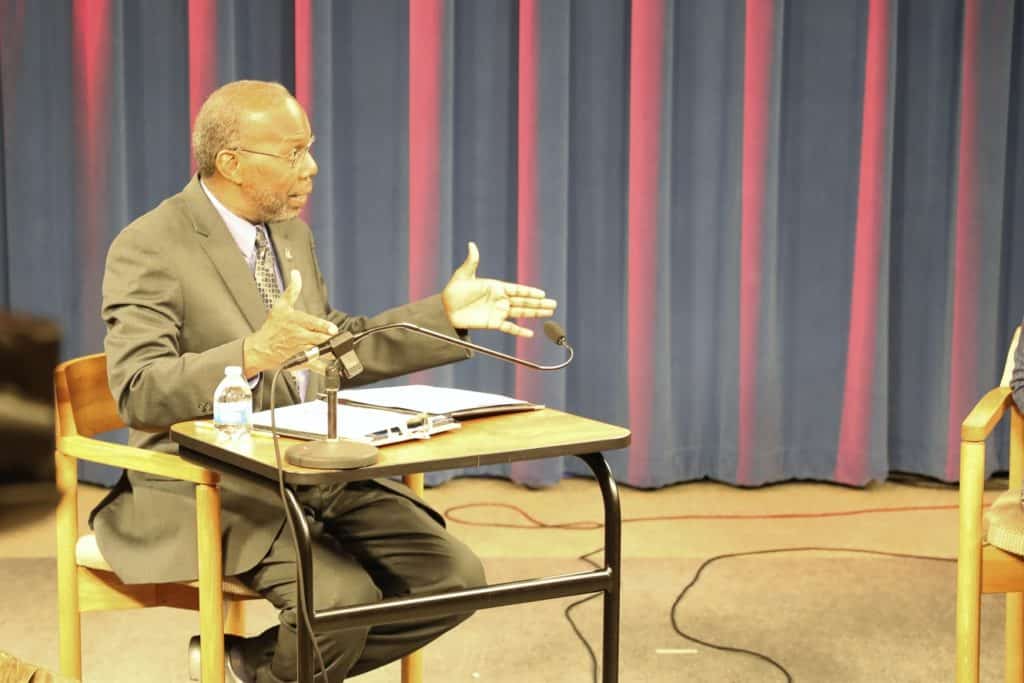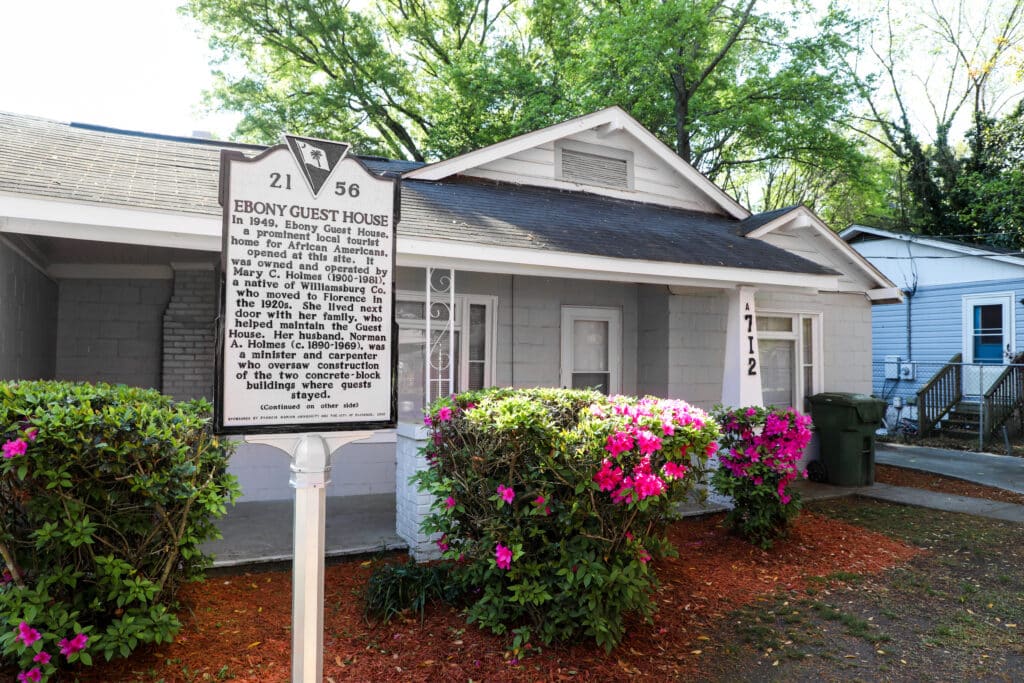Universities Studying Slavery
Campus and Community
Multi-Institutional Collaboration
The Universities Studying Slavery (USS) consortium, created and led by the University of Virginia, represents a multi-institutional collaboration focused on sharing best practices and guiding principles about truth-telling projects addressing racialized human bondage and racism in institutional histories. Member schools are committed to research, acknowledgment, and atonement regarding institutional ties to the slave trade, enslavement on campus or abroad, and enduring racism in school history and practice.
USS additionally encourages participating institutions to work together as they address both historical and contemporary issues dealing with race and inequity in university communities. Together, the growing movement of schools committed to this work addresses the complicated legacies of slavery in the modern world.
USS at FMU
Francis Marion University joined USS in September 2021, making it the seventh South Carolina university to join the consortium. Current South Carolina colleges and universities who are members of USS are The Citadel, Clemson University, College of Charleston, Furman University, University of South Carolina, and Wofford College.
USS at FMU is a collaboration of university faculty, staff, and students as well as members and leaders of the Pee Dee community. The Pee Dee is a twelve-county region of South Carolina with an often neglected, but rich history. The legacies of colonialism, plantation slavery, and postbellum racism are apparent everywhere from the landscapes of the Pee Dee to the everyday lives of its residents.
FMU has been an institution for higher education in the Pee Dee for more than fifty years and has a developed strong presence in Florence’s downtown. USS at FMU builds upon and deepens relationships with neighboring communities through research and education. The first phase of the initiative focuses on youth and family in the Pee Dee region.
Mission Statement
To create a robust, comprehensive, and accessible understanding of the Pee Dee region’s historical connections to slavery and its legacies through campus and community collaboration.
Pee Dee Oral History Project
Established in the spring of 2021 under Dr. Erica Johnson of the History Department, the Pee Oral History Project collects historical experiences, insights, and perspectives from those originally from and living in the Pee Dee region. Initially focusing on race relations in the Pee Dee, the collection currently includes accounts of the hewn-timber cabins (located on FMU’s campus), sharecropping, the Mt. Zion Rosenwald School, the Civil Rights Movement, military service, school segregation and integration, and the university’s history.
Interviewees include Allie Brooks, Jr., John Miller, Ann Nelson Gregg, Annie Lee Robinson, Otis Waiters, Priscilla Brown, Ed Addison, Tim Waters, and Yvette Pierce. We record the interviews and preserve them in the Rogers Library.


Pee Dee Historical Markers Project
In 2019, Dr. Meredith Love of the English Department at FMU and Cherish Thomas, Registrar of the Florence County Museum, began collaboration on researching the history of Green Book sites in the Pee Dee. First published in 1936 by a New York City postal worker named Victor Hugo Green, The Negro Motorist Green Book propagated the names and locations of boarding houses, hotels, restaurants, bars, and other businesses across the country where African Americans were welcome as customers. Thomas had already completed extensive research into the addresses and owners of Green Book sites in Florence and Darlington; Love was working on the role of the Green Book in the state. After Love and Thomas presented this research at the Museum in January 2020, it was apparent that there was a good deal of community interest in learning more about the Green Book sites and sharing that research with a larger audience.
Working with the City of Florence, USS at FMU has successfully placed a historical marker for the Ebony Guest House located at 712 N. Wilson Street. For roughly 25 years, African American ministers, soldiers, and even celebrities came to the Ebony Guest House for its hospitality, modern conveniences, and ideal location. The next marker is in production. It will be for Dr. Iola Jones Park.